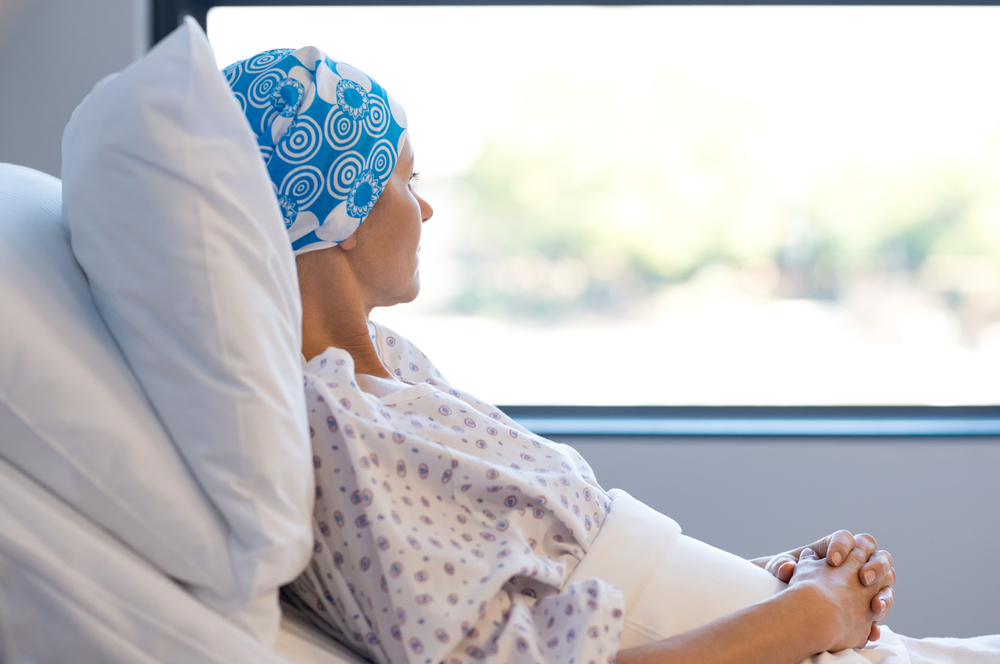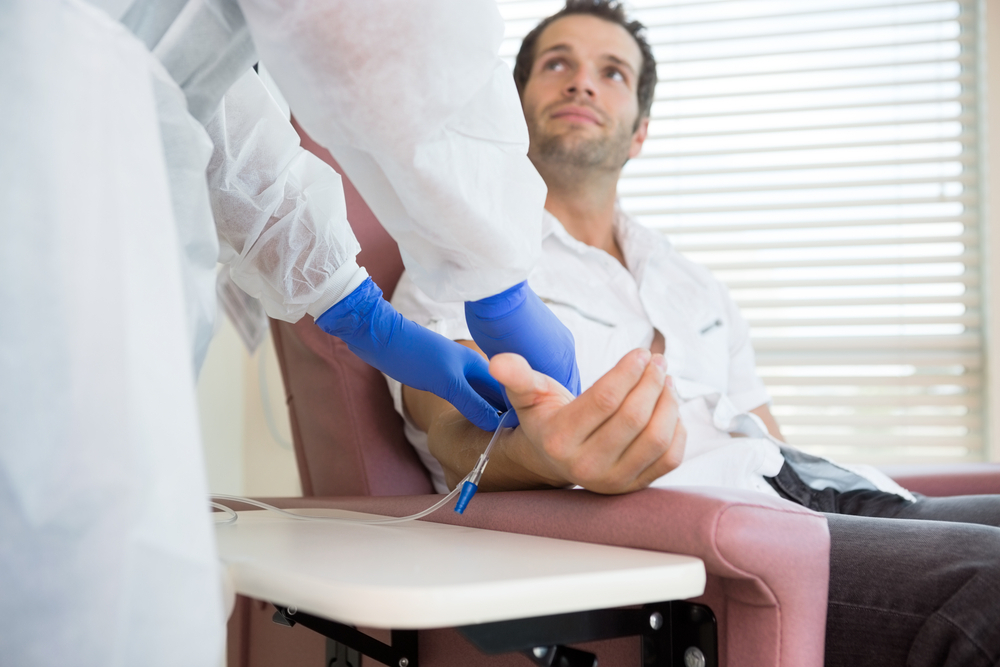Chemotherapy And Radiation Cancer Treatment
Chemotherapy And Cancer Treatment In Turkey
Chemotherapy For Cancer In Turkey Is Given Significant Attention By Educational And Medical Institutions, And As A Result, Cancer Chemotherapy Has Recently Advanced To A Very High Level In The Region. You Will Find Highly Experienced Doctors In Chemotherapy In Turkey, And In Addition, There Are Specialized Centers And Departments Equipped With The Latest Technologies, Including The Dedicated Chemotherapy Department At Tedavi In Turkey.


Chemotherapy And Cancer Radiation Treatment
Chemotherapy (Chemical Treatment) Is An Approved Treatment For Various Types Of Cancer. In Chemotherapy, Specific Medications Are Used To Destroy Cancer Cells And Prevent Them From Growing Or Spreading To Other Parts, Areas, And Tissues Of The Body. Chemotherapy Is Effective In Preventing Cancer Cells From Growing, Dividing, And Forming More Cells, Which Is Why Many Doctors Opt For It After Selecting The Most Suitable Treatment Method For The Patient.
Chemotherapy Is Generally Effective, But It Yields Much Better Results When It Comes To Cells That Grow And Divide Actively. Since Cancer Cells Tend To Grow And Divide More Rapidly Than Normal Cells, This Makes Chemotherapy Particularly Effective Against Them.
Why Do Some People Lose Their Hair, Vomit, Or Experience Diarrhea During Chemotherapy Treatment?
Hair Loss, Vomiting, And Diarrhea Are Common Side Effects Experienced By Some Cancer Patients Undergoing Chemotherapy, And In Some Cases, Hair Loss Can Be Severe, Leading To Complete Baldness. Not All Patients Experience These Symptoms, But They Are Quite Common Among Those Receiving Chemotherapy For Cancer. The Severity Of These Symptoms Varies From Person To Person, Depending On Factors Such As The Individual’s Nature, Health Status, Age, And How Their Body And Immune System Respond To Chemotherapy.
One Of The Main Reasons For These Symptoms (Hair Loss, Diarrhea, Vomiting, Etc.) Is That Chemotherapy Cannot Distinguish Between Cancerous Cells And Some Normal Cells. As A Result, Chemotherapy Affects These Normal Cells Directly, Preventing Them From Growing. Among These Cells Are Those In Hair Follicles And Cells In The Lining Of The Digestive System, Which Tend To Grow And Divide More Rapidly Than Other Cells In The Body. Thus, Chemotherapy Directly Affects And Destroys These Cells, Leading To Hair Loss, Baldness, And Other Side Effects Like Vomiting And Diarrhea. In Most Cases, These Normal Cells Can Repair The Damage Over Time.
How Long Does Chemotherapy Treatment Take?
Cancer Patients Vary From One Another Based On Their Specific Condition And The Extent Of Cancer Spread, Which Affects The Duration Of Chemotherapy Treatment They Will Require. At Tedavi, Your Chemotherapy Plan Will Be Created By An Oncologist And Cancer Specialist Who Oversee The Medications. Oncologists And Cancer Specialists Work With Other Members Of The Healthcare Team To Plan And Administer Treatments, Taking Into Consideration The Patient’s Health Status To Develop The Best Approach For Delivering The Most Suitable Chemotherapy Based On Their Specific Condition.
There Are Several Ways To Administer Chemotherapy, Including Daily, Weekly, Or Even Monthly Treatments. The Most Suitable Method For Administering Chemotherapy Is Determined Based On The Patient’s Health Condition, As Well As The Results Of Medical Tests And Examinations. Chemotherapy Medications Are Often Given At Regular Intervals, Referred To As Doses Or Cycles.
The Duration Of Chemotherapy And How Long It Will Continue Is Also Determined By The Treating Oncologist, Based On The Patient’s Health Condition, Test Results, And The Body’s Response To The Chemotherapy Treatment. In Any Case, The Healthcare Team Will Monitor The Patient’s Condition And Provide Details About The Treatment Stages, Including The Duration.
The Oncologist Overseeing The Patient’s Treatment Will Conduct Regular Examinations, And Based On The Results, Will Determine How Well The Patient Is Responding To The Treatment. In Some Cases, The Oncologist May Adjust The Treatment Plan, Such As Modifying The Dose, Cycle, Interval Between Doses, Or Method Of Administering The Medication.
During Chemotherapy, The Doctor Will Advise On What Foods And Drinks Are Suitable And What Should Be Avoided. It Is Very Important For The Patient To Inform The Treating Doctor About All Medications They Are Taking, Including Supplements, Vitamins, Chemotherapy Drugs, Or Herbal Remedies.
What Are The Methods Of Administering Medications Used In Chemotherapy?
Cancer Radiation Treatment
There Are Over A Hundred Types Of Cancer That Can Affect Humans. Cancer Is A Group Of Diseases Involving Uncontrolled Cell Growth With The Potential To Spread To Other Parts Of The Body.
According To A Report By The World Health Organization, A Third Of Cancer-Related Deaths Are Attributed To Five Major Behavioral And Dietary Factors:
- High Body Mass Index
- Low Consumption Of Fruits And Vegetables
- Low Physical Activity
- Smoking
- Alcohol Consumption.
Radiation Therapy, Or Cancer Radiation Treatment, Is A Proven Type Of Cancer Treatment That Relies On Using High-Energy Beams To Destroy Cancer Cells. Radiation Therapy Often Uses X-Rays, But Protons And Other Types Of Radiation Can Also Be Used.

How Does Radiation Therapy Treat Cancer Patients?
Radiation Therapy Destroys Cancer Cells By Targeting Their Genetic Material, But It Can’t Distinguish Between Healthy And Cancerous Cells. This Means It Can Also Harm Healthy Cells, A Limitation Shared With Chemotherapy. The Goal Is To Maximize The Destruction Of Cancer Cells While Minimizing Damage To Healthy Ones. Fortunately, Healthy Cells Can Often Repair Themselves Quickly After Radiation Therapy.
How Does Chemotherapy Treat Cancer Patients?
When A Cancer Patient Undergoes Chemotherapy, The Treatment Works By Destroying Cancer Cells Using Specific Medications. These Medications Are Administered In One Of Three Ways: Through An Intravenous (IV) Line, Orally, Or Into Body Cavities Such As The Abdominal Cavity, Pleural Cavity, Or Bladder. Chemotherapy Is Particularly Effective Against Cells That Grow And Divide Rapidly, Which Is Why It Works Well Against Cancer Cells Since They Tend To Grow And Divide Faster Than Normal Cells.
However, A Key Drawback Of Chemotherapy Is That It Cannot Distinguish Between Cancerous And Healthy Cells. This Means That Chemotherapy Affects All Parts, Cells, And Tissues Of The Body, Not Just The Cancer Cells. As A Result, Patients May Experience Side Effects Affecting Healthy Cells As Well. One Of The Most Noticeable Effects Is Hair Loss, Which Can Include Not Only Scalp Hair But Also Eyebrows, Eyelashes, Facial Hair, And Body Hair. Chemotherapy Destroys Hair Follicle Cells, Leading To Hair Loss And Potentially Full Baldness.
The Good News Is That These Side Effects, Including Hair Loss, Are Temporary. Once The Chemotherapy Treatment Is Completed, Hair Growth Typically Resumes, And The Patient’s Appearance Gradually Returns To Normal, Though It May Take Some Time.
The Side Effects A Patient May Experience During Chemotherapy
As Mentioned Earlier, Chemotherapy Does Not Distinguish Between Cancer Cells And Healthy Cells That Also Grow Quickly. As A Result, Chemotherapy Can Affect These Healthy Cells, Leading To Several Common Side Effects. One Of The Most Noticeable Side Effects Is Hair Loss, But There Are Many Other Possible Symptoms, Including Vomiting, Severe Diarrhea, And A Weakened Immune System.
The Good News Is That These Side Effects Are Generally Temporary. Once Chemotherapy Treatment Is Completed, These Symptoms Tend To Subside. For Example, If A Patient Experiences Hair Loss During Chemotherapy, Their Hair Will Typically Regrow After The Treatment Is Finished, Although It May Take Some Time For It To Return To Its Previous State.
Patient Health Assessment And Consultation On The Appropriate Cancer Treatment Approach
The Patient’s Health Will Be Assessed By An Oncologist And The Healthcare Team, Who Will Provide The Patient With All The Necessary Information Regarding The Treatment, Including The Method, Expected Duration, And Other Relevant Details. Based On The Patient’s Response To The Approved Treatment Plan, The Oncologist May Make Adjustments To The Treatment Strategy To Ensure The Best Possible Outcome.
Preparation For Chemotherapy
Initially, Complete Medical Tests And Examinations Will Be Conducted. The Specialist Doctor Will Then Assess Your Health Status And Determine The Appropriate Method Of Chemotherapy (IV, Oral, Or Intracavitary) As Well As The Duration Between Doses (Daily, Weekly, Monthly). It Is Essential To Inform The Doctor About All The Medications You Are Taking, Including Dietary Supplements.
Radiation Therapy For Breast Cancer
Radiation Therapy For Breast Cancer Uses High-Energy X-Rays, Protons, Or Other Particles Instead Of Medications. This Radiation Does Not Cause Pain, And It Is Invisible. Radiation Therapy Can Be Used To Treat Breast Cancer In Most Stages, And One Of Its Key Benefits Is That It Reduces The Chances Of Breast Cancer Recurrence After Surgery.
Radiation Therapy For Prostate Cancer
Radiation Therapy Is A Key Option For Treating Prostate Cancer, Especially In The Early Stages When The Cancer Is Confined To The Prostate. A Device Called A Linear Accelerator Is Used To Direct High-Energy Radiation Beams Onto The Cancer Cells, Effectively Killing Them.
At Tedavi, We Combine Medical Expertise With Advanced Technology. We Have The Best Medical Team In Turkey And Work With The Most Skilled Oncologists And Cancer Specialists. Treatment At Tedavi Always Follows The Highest Global Safety Standards, With Rooms Equipped With The Latest Devices And Equipment.
Frequently Asked Questions (FAQ)
It Depends On The Medical Condition, The Treating Doctor Will Determine That.
It Can Be Administered Through An IV, By Mouth, Or Into A Body Cavity Such As The Abdominal Cavity, Pleura, Or Bladder.
No, There Are Also Radiation Therapy, Surgery, Bone Marrow Transplant, Hormonal Therapy, And Drug Therapy.
Depending on the medical condition, treatment method, and the nature of the case, your treating doctor will determine that.
You can eat small meals and drink plenty of fluids, and your treating doctor may prescribe medications to reduce nausea and vomiting.
Chemotherapy Is The Use Of A Specific Type Of Medication To Destroy Cancer Cells And Prevent Them From Growing, Dividing, And Forming More Cells.
It Depends On The Patient's Condition And The Expertise Of The Treating Doctor.
It Is Painful, In Addition To The Presence Of Painful Side Effects Such As Headaches And Nausea.
Depending On The Medical Condition, Treatment Method, And The Nature Of The Job, The Treating Doctor Will Determine That For You.
Depending On The Medical Condition And Treatment Method, But Generally, It Is Important To Quit Smoking, Alcohol, And Processed Foods.
Feel Free To Contact Us And Get More Information About Chemotherapy For Cancer In Turkey At Tedavi.
Get A Free Consultation
Get A Free Consultation
You Can Now Get A Free Consultation And Learn All The Details That Matter To You About Your Health Condition.
